Search Results for: Virus
Skip to resultsCan’t find what you’re looking for? Visit our FAQ page.
6,291 results for: Virus
-
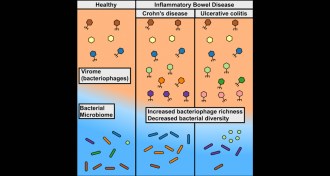 Life
LifeWhen bacteria-killing viruses take over, it’s bad news for the gut
A rise in some bacteria-killing viruses in the intestines may deplete good bacteria and trigger inflammatory bowel diseases.
-
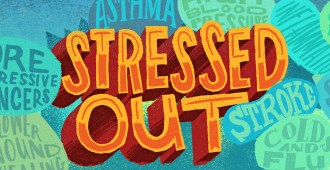 Health & Medicine
Health & MedicineChronic stress can wreak havoc on the body
Scientists are shedding light on all the ways that chronic stress can boost inflammation and lead to serious health problems.
By Nathan Seppa -
 Life
LifeIn battle to shape immunity, environment often beats genes
The environment, especially microbes, shapes immune system reactions more than genes do.
-
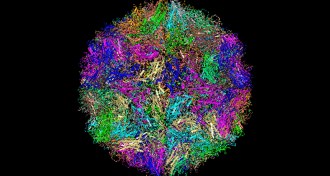 Life
LifeCold coddles colds
Antiviral responses aren’t as effective against common cold viruses in cooler temperatures.
-
 Health & Medicine
Health & Medicine‘AIDS’ gives inside view of science, politics of epidemic
In ‘AIDS Between Science and Politics,’ pioneering HIV expert Peter Piot discusses the factors and events that shaped the epidemic.
By Beth Mole -
 Neuroscience
NeuroscienceCold War collaboration probed possible viral cause of ALS
A mid-1960s collaboration between American and Soviet researchers explored a possible viral cause of ALS.
By Beth Mole -
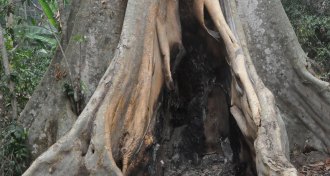 Life
LifeInsect-eating bats implicated as Ebola outbreak source
Insect-eating bats, not fruit bats, may have started the Ebola epidemic.
-
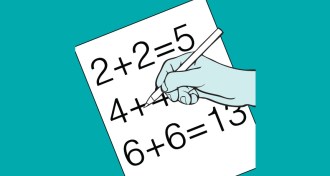 Science & Society
Science & Society12 reasons research goes wrong
Barriers to research replication are based largely in a scientific culture that pits researchers against each other in competition for scarce resources. Here are a few that skew results.
-
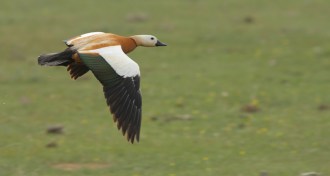 Life
LifeBird flu follows avian flyways
A deadly bird flu virus spreads along wildfowl migration routes in Asia.
-
 Science & Society
Science & SocietyBig data studies come with replication challenges
As science moves into big data research — analyzing billions of bits of DNA or other data from thousands of research subjects — concern grows that much of what is discovered is fool’s gold.
-
 Genetics
GeneticsThe year in genomes
From the tiny Antarctic midge to the towering loblolly pine, scientists this year cracked open a variety of genetic instruction manuals to learn about some of Earth’s most diverse inhabitants.
By Meghan Rosen -
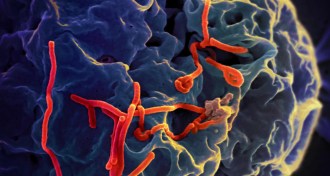 Microbes
MicrobesYear in review: Science faces Ebola epidemic
West Africa’s 2014 Ebola epidemic showed what can happen when a contagious virus emerges where cultural practices, public fears and porous borders fuel the spread of disease.
By Nathan Seppa